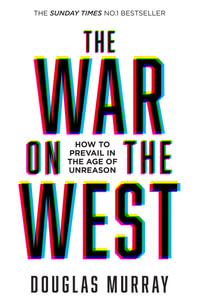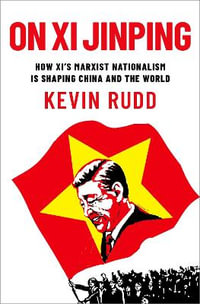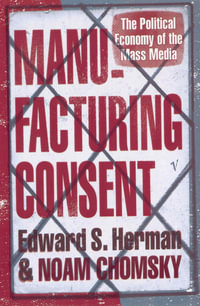VOLUME I: SITUATING GLOBAL GOVERNANCE SCHOLARSHIP Part 1: Classic contributions to the study of regimes and international relations 1. Robert Keohane and Joseph S. Nye, Power and Interdependence: World Politics in Transition (Boston: Little, Brown and Company, 1977). 2. John Ruggie, 'International regimes, transactions, and change: embedded liberalism in the postwar economic order', International Organization, vol. 36, no. 2, Spring 1982, pp. 379-415. 3. Robert W. Cox, 'Social Forces, States and World Orders: Beyond International Relations Theory', Millennium, vol. 10, no. 2, 1981, pp. 126-155. Part 2: Global governance weathervanes 4. James N. Rosenau, 'Governance in the Twenty-first Century', Global Governance, vol. 1, no. 1, 1995, pp. 13-43. 5. Cerny, Philip G., 'Plurilateralism: structural differentiation and functional conflict in the post-cold war world order', Millennium, vol. 22, no. 1, March 1993, pp. 27-51. 6. Craig N. Murphy, 'The promise of liberal internationalism', in: Craig N. Murphy, International Organization and Industrial Change: Global Governance Since 1850 (Polity Press, 1994). 7. David Held, 'Stories of Democracy: Old and New', in: David Held, Democracy and the Global Order (Stanford University Press, 1995). 8. Marc A. Levy, Oran R. Young and Michael Zurn, 'The Study of International Regimes', European Journal of International Relations, vol. 1, no. 3, pp. 267-330. 9. Susan Strange, 'Part I: Theoretical Foundations', in: Susan Strange, The Retreat of the State (Cambridge University Press, 1996), pp. 3-66. 10. Robert W. Cox, 'Social Forces, States and World Orders: Beyond International Relations Theory', Millennium, vol. 10, no. 2, 1981, pp. 126-155. Part 3: Situating contemporary global governance debate 11. Robert Keohane, 'Governance in a Partially Globalized World', American Political Science Review, vol. 95, no. 1, March 2001, pp. 1-13. 12. David Vogel and Robert A. Kagan, Introduction: National Regulations in a Global Economy, in: David Vogel and Robert A. Kagan (eds.), Dynamics of Regulatory Change: How Globalization Affects National Regulatory Policies (University of California Press, 2004), pp. 1-41. 13. Klaus Dingwerth and Philipp Pattberg, 'Global Governance as a Perspective on World Politics', Global Governance, vol. 12, no. 2, April 2006, pp. 185-203. 14. Deborah D. Avant, Martha Finnemore, and Susan K. Sell, 'Who governs the globe?' In: D. Avant, M. Finnemore, and S. Sell (eds.), Who Governs the Globe? (Cambridge: Cambridge University Press, 2010), pp. 1-34. 15. Tom Pegram and Michele Acuto, 'Introduction: Global Governance in the Interregnum', Millennium, vol. 43, no. 2, January 2015, pp. 584-597. 16. Andrew Hurrell, 'Can the Study of Global Order be De-Centred?' Power and Region in A Multipolar Order (PRIMO) Working Paper No. 2/2015. VOLUME II: STRUCTURES AND POLITICAL ECONOMY OF GLOBAL GOVERNANCE: CRITICAL INTERVENTION Part 4: Regulatory approaches to global governance 17. Kenneth and Snidal, 'Hard and Soft Law in international Governance', International Organization, vol. 54, no. 3, Summer 2000, pp. 421-56. 18. Ronald B. Mitchell and Patricia Keilbach, 'Situation Structure and Institutional Design: Reciprocity, Coercion, and Exchange', International Organization, vol. 55, no. 1, 2001, pp. 1019-1040. 19. Walter Mattli and Ngaire Woods, 'In Whose Benefit? Explaining Regulatory Change in Global Politics', in W. Mattli and N. Woods (eds.), The Politics of Global Regulation (Princeton University Press, 2009), Ch. 1. 20. Grainne de Burca, Robert O. Keohane and Charles Sabel, 'Global Experimentalist Governance', British Journal of Political Science, vol. 44(3), July 2014, 477-486. Part 5: New global governance approaches 21. Kenneth Abbott et al., 'Orchestration: global governance through intermediaries', in: International Organizations as Orchestrators (Cambridge University Press, 2015, pp. 3-36. 22. Michael Zurn, Barry Buzan and Mathias Albert, 'Conclusion: differentiation theory and world politics', in: Mathias Albert et al. (eds.), Bringing Sociology to International Relations: World Politics as Differentiation Theory (Cambridge University Press, 2015), pp. 228-245. 23. Amitav Acharya, 'Global International Relations (IR) and Regional Worlds', International Studies Quarterly, vol. 58, no. 4, December 2014, pp. 647-659. Part 6: Locating power in global governance 24. Michael Barnett and Raymond Duvall, 'Power in International Politics', International Organization, vol. 59, no. 1, Winter 2005, pp. 39-75. 25. Michael N. Barnett and Martha Finnemore, 'The Politics, Power, and Pathologies of International Organizations', International Organization, Vol. 53, No. 4, 1999, pp. 699-732. 26. Mareike Kleine, 'Introduction', in: Mareike Kleine, Informal Governance in the European Union: How Governments Make International Organizations Work (Cornell University Press, 2013), Ch. 1. 27. Mathias Koenig-Archibugi and Kate Macdonald, 'Accountability-by-Proxy in Transnational Non-State Governance', Governance, vol. 26, no. 3, pp. 499-522. Part 7: Agency and gatekeepers 28. Anne-Marie Slaughter, 'The Real New World Order', Foreign Affairs, vol. 76, no. 5, Sept Oct 1997, pp. 183-97. 29. Charli Carpenter, 'Governing the global agenda: "gatekeepers" and "issue adoption" in transnational advocacy networks', in D. Avant et al. (eds.), Who Governs the Globe? (Cambridge University Press, 2010), pp. 202-37. 30. Jessica Green, 'Introduction: A Theory of Private Authority', in: Jessica Green, Rethinking Private Authority: Agents and Entrepreneurs in Global Environmental Governance (Princeton University Press, 2013), pp. 1-25. Part 8: Values and legitimacy in global governance 31. Ian Hurd, 'Legitimacy and Authority in International Politics', International Organization, vol. 53, Spring 1999, pp. 379-408. 32. David Lake, 'Rightful rules: Authority, order and the foundations of global governance', International Studies Quarterly, vol. 54, September 2010, pp. 687-613 33. Matthew Eagleton-Pierce, 'The concept of governance in the spirit of capitalism', Critical Policy Studies, vol. 8, no. 1, 2014, pp. 5-21. VOLUME III: GLOBAL GOVERNANCE AND THE NATION STATE: TRANSCENDING METHODOLOGICAL NATIONALISM Part 9: Architectures of global governance 34. Frank Biermann et al., 'The Fragmentation of Global Governance Architectures: A Framework for Analysis', Global Environmental Politics, vol. 9, no. 4, November 2009, pp. 14-40. 35. David G. Victor and Kal Raustiala, 'The regime complex for plant genetic resources', International Organization, vol. 32, no. 2, April 2004, pp. 147-54. 36. Karen Alter and Sophie Meunier, 'The Politics of International Regime Complexity', Perspectives on Politics, vol. 7, no. 1, March 2009, pp. 13-24. 37. Robert O. Keohane & David G. Victor, The Regime Complex for Climate Change, Perspective on Politics, vol. 9, no. 1, March 2011, pp. 7-23. Part 10. Global governance as multi-level governance 38. Michael Zurn, 'Global governance as multi-level governance', in Henrik Enderlein et al. (eds.) Handbook on Multi-level Governance (Northampton: Edward Elgar 2010), pp. 80-102. 39. Henry Farrell and Abraham Newman, 'The New Politics of Interdependence: Cross-National Layering in Transatlantic Regulatory Disputes', Comparative Political Studies, vol. 48, n0. 4, March 2015, pp. 1-30. 40. Gregory Shaffer, 'The Dimensions and Determinants of State Change'. In: Gregory Shaffer, Transnational Legal Ordering and State Change (Cambridge: Cambridge University Press, 2014), pp. 23-50. 41. David Coen and Mark Thatcher, 'New Governance of Markets: Regulation by Non-Majoritarian Institutions', Governance, vol. 25, no. 3, 2005, pp. 329-34. Part 11: Bringing the state (back) into global governance 42. Saskia Sassen, 'The State and the New Geography of Power', in: Saskia Sassen, Losing Control: Sovereignty in the Age of Globalization (Columbia University Press, 1996), pp. 1-32. 43. Shahar Hameiri and Lee Jones, 'Global Governance as State Transformation', Political Studies, published online 29 September 2015, pp. 1-18. 44. Alexander Betts and Phil Orchard, 'Introduction: The Normative Institutionalization-Implementation Gap', in: Alexander Betts and Phil Orchard (Eds.), Implementation and World Politics: How International Norms Change Practice (Oxford University Press, 2014), pp. 1-28. Part 12: Transnational governance and business regulation 45. Tim Buthe and Walter Mattli, 'The Rise of Private Regulation in the World Economy', in: Tim Buthe and Walter Mattli, The New Global Rulers: The Privatization of Regulation in the World Economy (Princeton University Press, 2011), pp. 1-17. 46. Virginia Haufler, 'Disclosure as Governance: The Extractive Industries Transparency Initiative and Resource Management in the Developing World', Global Environmental Politics, vol. 10, no. 3, 2010, pp. 53-73. 47. Daniel Berliner and Aseem Prakash, '"Bluewashing" the firm? Voluntary Regulations, Program Design, and Member Compliance with the United Nations Global Compact', Policy Studies Journal, vol. 43, no. 1, 2015, pp. 115-138. VOLUME V: CHANGE AND CONTINUITY IN GLOBAL GOVERNANCE Part 13: The more things change... 48. Alexander Wendt, 'Driving With the Rearview Mirror: On the Rational Science of Institutional Design', International Organization, vol. 55, no. 1, pp. 1019-1049. 49. Thomas G. Weiss and Rorden Wilkinson, 'Change and Continuity in Global Governance', Ethics & International Affairs, vol. 29, no. 4, 2015, pp. 397-406. 50. Julia C. Morse and Robert O. Keohane, 'Contested Multilateralism', Review of International Organizations, vol. 9, no. 4, 2014, pp. 385-412. Part 14: ...the more they stay the same 51. Thomas Hale et al., 'Beyond Gridlock?' In: T. Hale et al., Gridlock: Why Global Cooperation is Failing When We Need It Most (London: Polity Press, 2013), pp. 273-311. 52. Daniel Drezner, 'Bringing the Great Powers Back In'. In: D. Drezner, All Politics is Global: Explaining International Regulatory Regimes (Princeton University Press, 2007), pp. 3-31. 53. Ian Goldin, 'New Global Governance Challenges'. In: Ian Goldin, Why global governance is failing, and what we can do about it (Oxford: Oxford University Press, 2013),Ch. 1. Part 15: Global governance in application 54. Erin R. Graham, 'International Organizations as Collective Agents: Fragmentation and the Limits of Principal Control at the World Health Organization', European Journal of International Relations, vol. 19, no. 1, March 2013. 55. Tom Pegram, 'Global human rights governance and orchestration: National human rights institutions as intermediaries, European Journal of International Relations, forthcoming 2015. 56. Angel Saz-Carranza et al., 'The Power Dynamics of Mandated Network Administrative Organizations', Public Administration Review, published online: 29 September 2015. 57. Lauge Poulsen, 'Bounded Rationality and the Diffusion of Modern Investment Treaties', International Studies Quarterly, vol. 58, no. 1, March 2014, pp. 1-14. 58. Susan K. Sell, 'TRIPS was never enough: vertical forum shifting, FTAs, ACTA, and TPP', Journal of Intellectual Property Law, vol. 18, 2011, pp. 447-478. 59. John S Dryzek and Hayley Stevenson, 'Global democracy and earth system governance', Ecological Economics, vol. 70, no. 11, September 2011, pp. 1865-1874. 60. Tom Hale, 'The rule of law in the global economy: Explaining intergovernmental backing for private commercial tribunals', European Journal of International Relations, vol. 21, no. 3, September 2015, pp. 483-512.
























